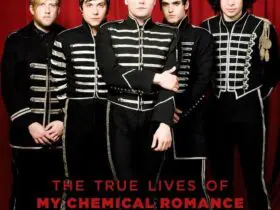The Cure’s crusade against ticketing woes
A band’s battle for fair ticket prices
In the ever-evolving landscape of the music industry, few bands have managed to maintain their relevance and integrity like The Cure. Last year, the iconic group, led by the enigmatic Robert Smith, made headlines not for their music, but for their vocal efforts to combat the rising tide of ticketing fees and scalpers. This move not only resonated with their fanbase but also highlighted a significant issue plaguing the live music scene.
The ticketing dilemma
The rise of exorbitant fees
The modern concert-going experience has been marred by the increasing prevalence of ticketing fees. These additional costs, often hidden until the final stages of purchase, can significantly inflate the price of attending a live event. For many fans, this has turned the joy of seeing their favorite artists into a financial burden. The Cure’s decision to address this issue head-on was both timely and necessary.
Scalpers and their impact
Scalpers have long been a thorn in the side of genuine music lovers. By purchasing large quantities of tickets and reselling them at inflated prices, they create an artificial scarcity that drives up costs. This practice not only exploits fans but also undermines the artists’ efforts to connect with their audience. The Cure’s campaign against scalpers was a bold step towards restoring fairness in the ticketing process.
The Cure’s proactive approach
Engaging with fans
One of the most commendable aspects of The Cure’s campaign was their direct engagement with fans. By leveraging social media and other platforms, the band was able to communicate their concerns and rally support. This transparent approach not only built trust but also empowered fans to take a stand against unfair practices.
Collaborating with industry stakeholders
The Cure didn’t stop at raising awareness; they actively sought to collaborate with industry stakeholders to find solutions. By working with ticketing platforms and advocating for policy changes, the band demonstrated a commitment to creating a more equitable system. This proactive stance set a precedent for other artists to follow.
The broader implications
Setting a new standard
The Cure’s efforts have had a ripple effect across the music industry. Other artists have taken note and begun to address similar issues within their own spheres. This collective push for change is gradually setting a new standard for how ticketing should be managed, prioritizing fairness and transparency.
Empowering fans
By championing the cause of fair ticketing, The Cure has empowered fans to demand better. This shift in consumer expectations is crucial for driving long-term change. As more fans become aware of their rights and the practices that exploit them, the pressure on the industry to reform will only increase.
Technical analysis: The Cure’s influence
A legacy of innovation
The Cure has always been at the forefront of musical innovation. From their early post-punk days to their later forays into gothic rock and beyond, the band has consistently pushed boundaries. This same spirit of innovation is evident in their approach to tackling the ticketing crisis. By leveraging their influence and platform, they have once again proven to be pioneers, this time in advocating for industry reform.
The economic impact
The economic implications of The Cure’s campaign are significant. By reducing ticketing fees and curbing scalping, more fans are able to afford concert tickets. This not only benefits the fans but also the artists and venues, as it leads to higher attendance and potentially greater revenue from merchandise and concessions. The long-term economic benefits of a fairer ticketing system cannot be overstated.
Looking ahead
The future of live music
The Cure’s efforts have sparked a broader conversation about the future of live music. As the industry continues to evolve, it is crucial that artists, fans, and stakeholders work together to create a more equitable system. The lessons learned from The Cure’s campaign can serve as a blueprint for future initiatives aimed at improving the concert-going experience.
Continuing the fight
While significant progress has been made, the fight against unfair ticketing practices is far from over. It is essential that the momentum generated by The Cure’s campaign is maintained. By continuing to advocate for change and holding industry players accountable, the music community can ensure that the live music experience remains accessible and enjoyable for all.
The Cure’s crusade against ticketing woes has not only highlighted a critical issue but also set a powerful example for others to follow. Their commitment to fairness and transparency has resonated with fans and industry stakeholders alike, paving the way for a more equitable future in live music.
















